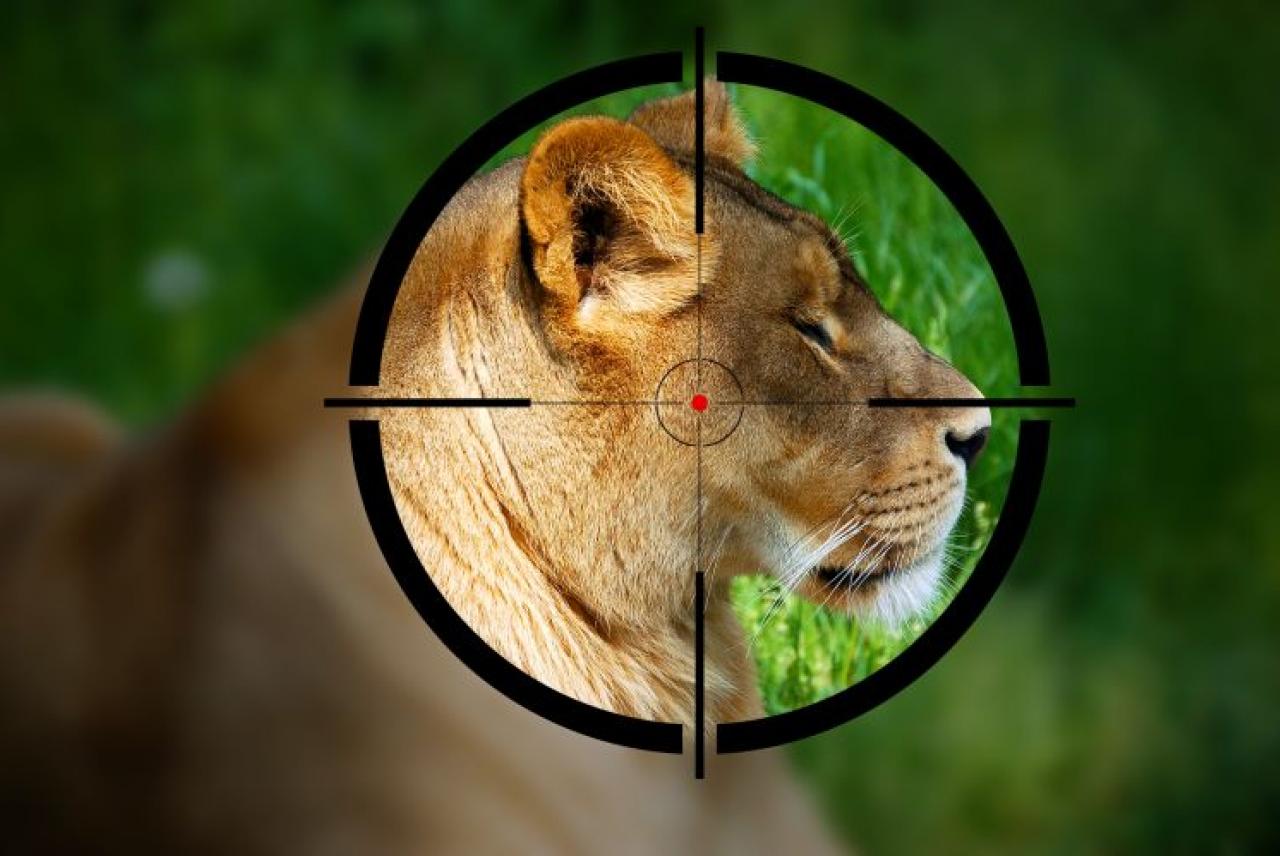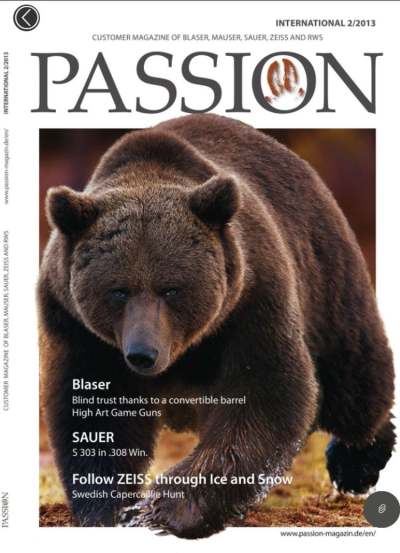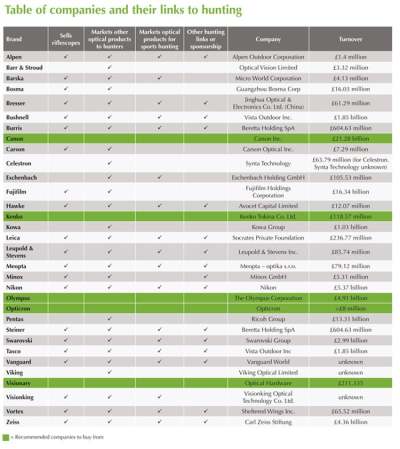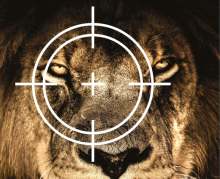In 2015 the killing of Cecil the Lion sparked outrage, as did Donald Trump’s more recent decision to lift the ban on elephant trophy imports from Zimbabwe and Zambia in November 2017. This public outcry to these moments demonstrates widespread opposition to hunting for fun or trophies in the UK.
You might expect companies operating in both pro-hunting and anti-hunting sectors to be transparent or to take a definitive ethical stance on such a thorny issue – which has significant animal rights as well as environmental aspects. But the optics industry has so far widely avoided taking a stand.
83% of major brands selling binoculars and other optics products specifically market to hunters, a recent Ethical Consumer report has found.
Shooting Wildlife II updates a 2016 report, which looked at links between the optics industry and the hunting world. The report reviewed marketing text and images, sponsorship links, and other company material that promoted hunting, particularly highlighting the glamorisation of sports hunts.
Of the 30 companies looked at, 25 had some link to hunting, and 20 were considered to have strong links – for example selling products specifically for hunting, or marketing products for sports hunts.
Companies were not only found to advertise to hunters; their support extended to sponsorship for hunting organisations and events, employment of ‘pro hunter’ professional staff, and even ‘training academies’ run by the companies on the use of optics for hunting sports.
The complex relationship between conservation and hunting
It might seem particularly surprising that connections to hunting remain so rife in an industry that also targets its products at bird watchers and conservationists.
Yet companies’ refusal to take a definitive in stand in fact reflects the long-running and complex relations between hunting and conservations. If hunting is well regulated and managed under the guidance of ecologists, it can provide revenue for conservation projects while helping to manage animal populations in a ‘sustainable’ way.
However, the reality can be far from this. Bad or corrupt management can have disastrous affects on ecosystems, and can in some cases lead to extinction.
Even a quota system can have unforeseen impacts. For example, if fewer animals are hunted, it is often those of a larger body or antler size that are selected as trophies. This often means killing the strongest males in an area, distorting mating patterns and potentially reversing the natural evolution of a species, where natural predators often kill the weak, old and young. The implications are both short and potentially very long-term, from altering population dynamics to the transference of genes. (1) (2)
Nonetheless, the complex relation between hunting and conservation plays a role in ongoing support for hunting by optics companies: 30% of companies looked at in the Shooting Wildlife II Report sponsored ‘conservation’ organisations that had ‘protecting hunters rights’ as part of their manifesto.
Unsustainable advertising
Seven companies were found to directly market products for trophy hunting – one of the types of hunt most widely recognised to impact animal populations. Many used images of specific animals which are known to have had their populations damaged by sports hunting.
Swarovski claims on its website, ‘we work in a harmonious symbiosis with nature and the environment because this forms the basis for the use of our products.’ Yet the company continues to market products specifically for ‘big-game’ hunting – an activity that is known to have serious impacts on animal populations. (3)
Zeiss ‘funds research programs aimed at protecting endangered animals.’ Yet the company simultaneously runs an ‘exclusive customer magazine’, which has discussed the hunting of black bear, lions and elephants. The populations of all three species are known to have been affected by sports hunts. (4) (5) (6)





